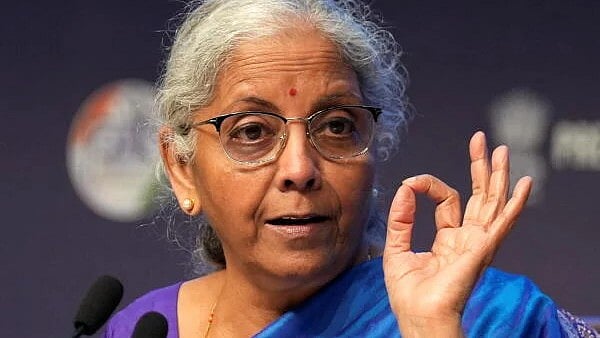
Union Finance Minister Nirmala Sitharaman
Credit: PTI File Photo
In most walks of life, scale brings efficiency. Factories lower unit costs as volumes rise, wholesalers reward bulk buying, and airlines pamper frequent fliers with cheaper average fares. The principle is timeless: the more you spend, the less you pay per unit.
Taxation, however, often flips this logic on its head. The bigger the spend, the higher the rate. A luxury car, a premium air ticket, a five-star meal — all attract not just higher tax revenues, but heavier tax rates. With the new GST reforms, though in the right direction, this paradox persists. Instead of scale easing the burden, it sharpens it. This is not economics at play, but psychology and politics.
Governments love to step in as philosophers of consumption, drawing lines between ‘needs’ and ‘indulgence’. If you can afford more, you must pay more — not merely in absolute terms, but in rates. The stated goal is redistribution, but the outcome is often distortion: aspiration gets punished, growth is discouraged, and avoidance finds fertile ground.
The economic downside is straightforward: money is almost always deployed more efficiently by its creator than by the State. Entrepreneurs recycle wealth into ventures, jobs, and innovation. Governments, constrained by bureaucracy and politics, rarely match that efficiency. Every extra layer of ‘luxury tax’ is, in effect, a tax on productivity itself.
To be clear, taxation has a vital role: funding roads, schools, hospitals, and defence — the roles that no individual can provide alone. But when tax policy strays into telling citizens how to live, or worse, punishes them for aspiring to live better, it crosses from rational economics into moral economics — similar to legal policing drifting to moral policing.
History offers plenty of reminders. Luxury taxes once crippled artisan industries in Europe. ‘Sin taxes’ often spawned black markets instead of healthier societies. Modern GST slabs on ‘luxury’ services frequently depress compliance and efficiency, while doing little for fair redistribution.
At its best, taxation should build bridges — literally and figuratively. It should create the physical infrastructure that connects people and the social infrastructure that uplifts them. Citizens must feel that what they pay empowers them to aspire — for better healthcare, education, amenities, and opportunities. After all, what is deemed a ‘luxury’ today often becomes tomorrow’s necessity. Running water, electricity, smartphones, and even air travel — once luxuries — are now essentials. A forward-looking tax system fuels this progression; a regressive one freezes it.
At its worst, however, taxation becomes a toll on ambition. It tells people that reaching higher is a social sin — and that is the surest way to stifle progress. Economies thrive when aspiration is rewarded, when creators are trusted to reinvest, and when governments focus on enabling productivity rather than prescribing morality.
Paradoxes may make for witty philosophy, but in economics they make for unstable systems. The wisest tax policy is one that raises tax revenue while also raising the horizon of aspirations.
V K Mathews is executive chairman, IBS Software, and chairman, GTECH. Views expressed are personal.